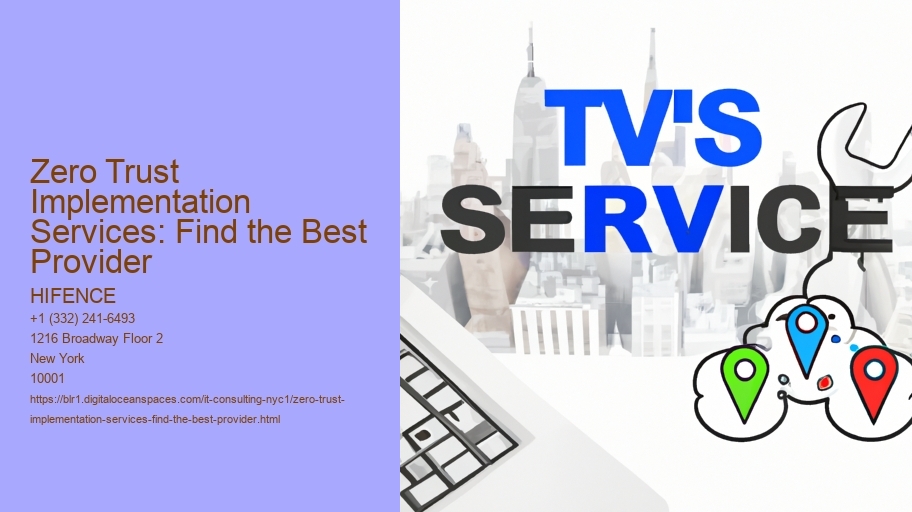Understanding Zero Trust Principles and Benefits
Understanding Zero Trust Principles and Benefits: A Key Step in Finding the Best Implementation Provider
Embarking on a Zero Trust journey requires more than just selecting a vendor; it demands a fundamental understanding of the principles that underpin this security philosophy. Before you even begin evaluating potential Zero Trust Implementation Service providers, its crucial to grasp what Zero Trust truly is and what benefits it promises (and, lets be honest, what it doesnt).
At its core, Zero Trust operates on the principle of "never trust, always verify." This means that no user or device, whether inside or outside the traditional network perimeter, is automatically trusted. Every access request is treated as potentially hostile and must be authenticated and authorized before being granted. Think of it like going to a very secure building; even if you work there, you still need your badge to enter every time.
This shift in mindset – from implicitly trusting internal users to explicitly verifying everyone – is a significant paradigm shift. It necessitates a move away from perimeter-based security (the "castle and moat" approach) towards a micro-segmentation model, where access is granted on a need-to-know basis. This means dividing your network into smaller, isolated segments, limiting the blast radius of any potential breach (like having firewalls between individual offices instead of just one at the building entrance).
The benefits of Zero Trust are numerous. Primarily, it significantly reduces the risk of lateral movement by attackers (preventing them from moving freely throughout your network once theyve gained initial access). It also enhances visibility into user activity and data access, allowing security teams to detect and respond to threats more effectively. Furthermore, Zero Trust can improve compliance with regulations that require strong access controls and data protection (meeting those ever-increasing cybersecurity standards).
However, understanding the limitations is equally important. Zero Trust isnt a silver bullet. Its a framework, a strategy that requires ongoing management and adaptation. Its not a product you can simply buy and install. Its a journey, not a destination. And, while it significantly reduces risk, it doesnt eliminate it entirely (no security measure ever truly can).
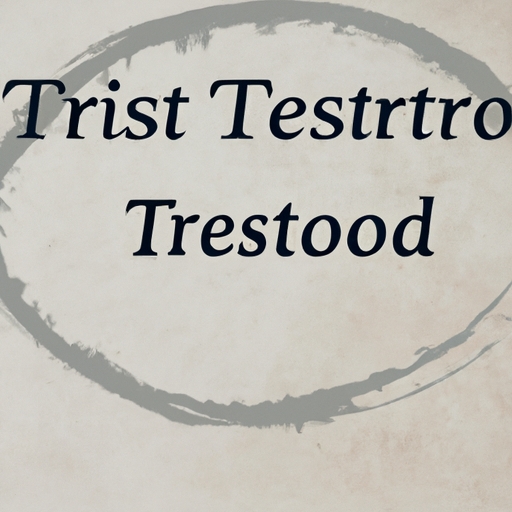
Therefore, when evaluating potential Zero Trust Implementation Service providers, look for those who demonstrate a deep understanding of these principles and benefits. They should be able to articulate how their services will help you implement a Zero Trust architecture that aligns with your specific business needs and risk profile (a cookie-cutter approach simply won't cut it). They should also be transparent about the challenges involved and offer realistic expectations. A provider who glosses over the complexities or promises unrealistic results is likely not the right partner for your Zero Trust journey.
Zero Trust Implementation Services: Find the Best Provider - managed services new york city
- check
Key Considerations When Choosing a Zero Trust Partner
Choosing a zero trust implementation partner is a big deal. Its not like picking out a new coffee machine; this decision profoundly impacts your organizations security posture (and potentially, your sanity). So, what key considerations should be swirling around in your head as you navigate this process?
First, experience, experience, experience (yes, its that important). Youre not looking for someone who just read a white paper on zero trust. You need a partner with a proven track record of successfully implementing zero trust architectures in environments similar to yours. Ask for case studies. Demand references.
Zero Trust Implementation Services: Find the Best Provider - managed service new york
- managed services new york city
- managed it security services provider
- managed services new york city
- managed it security services provider
- managed services new york city
- managed it security services provider
Next, consider their expertise. Zero trust isnt a single product or solution; its a philosophy, a framework. Does the partner understand the nuances of microsegmentation, identity and access management (IAM), endpoint security, and data security? Are they vendor-agnostic, or are they pushing a specific product regardless of your needs? A good partner will assess your existing infrastructure and recommend solutions that fit your specific requirements, not the other way around.
Then theres alignment. Do their values and approach align with your organizations culture and goals? Zero trust is a journey, not a destination, and youll be working closely with this partner for the foreseeable future. You need someone you can trust, someone who communicates clearly, and someone whos genuinely invested in your success (beyond just collecting a paycheck).
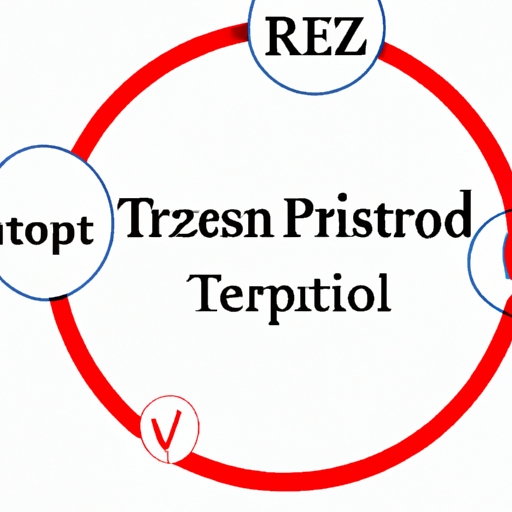
Finally, dont forget about support. What kind of ongoing support do they offer after the initial implementation? Do they provide training for your staff? Are they available to troubleshoot issues and help you adapt your zero trust strategy as your organization evolves (because it will)? A partner who disappears after the project is complete is about as useful as a screen door on a submarine. In short, choosing the right zero trust partner is about finding someone who is experienced, knowledgeable, aligned with your values, and committed to your long-term success. Its an investment, not just an expense.
Evaluating Potential Providers: Questions to Ask
Evaluating potential providers for Zero Trust implementation is a critical step, almost like choosing a doctor for a complex surgery. You wouldnt just pick anyone, would you? Youd want to ask the right questions to ensure they have the expertise and experience necessary to perform the operation successfully. Similarly, with Zero Trust (which, lets be honest, can feel just as complex!), you need to vet potential partners thoroughly.
What kind of questions should you be asking? Well, first, dig into their understanding of Zero Trust principles. Dont just accept buzzwords. Ask them to explain how they translate the core tenets – least privilege access, microsegmentation, continuous verification – into practical, real-world solutions. (For example, "Can you describe a specific scenario where you implemented microsegmentation in a cloud environment and the challenges you faced?").
Next, explore their experience. How many Zero Trust implementations have they completed? What industries have they worked in? (Industry-specific knowledge can be a huge asset). Request case studies or references. Talking to previous clients will give you valuable insights into their strengths and weaknesses. Dont shy away from asking about failures, either. Learning from mistakes is crucial.
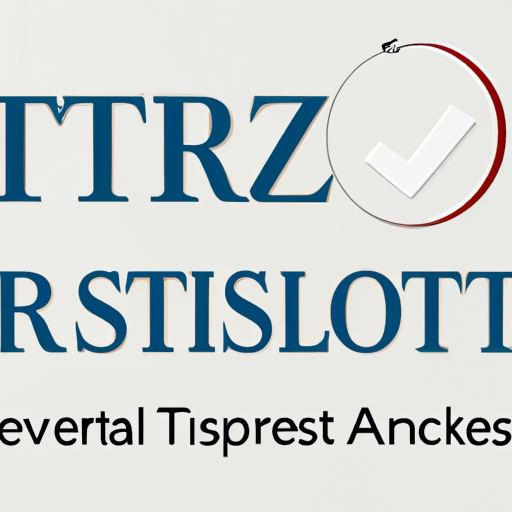
Then, drill down into their methodology. Do they have a structured approach to Zero Trust implementation? (A phased approach, for instance, can be less disruptive and more manageable). How do they assess your current security posture? What tools and technologies do they recommend and why? Ensure their proposed solutions align with your business needs and budget.
Finally, inquire about their teams expertise and certifications. Are they certified in relevant security domains? Do they have experience with the specific technologies youre using or planning to use? (Look for certifications like CISSP, CISM, or vendor-specific certifications for cloud platforms or security tools).
By asking these types of questions and carefully evaluating the answers, you can significantly increase your chances of finding a Zero Trust implementation service provider who is the right fit for your organization. Remember, its an investment in your security posture, so due diligence is paramount.
Top Zero Trust Implementation Service Providers
Finding the right partner to guide you through a Zero Trust implementation can feel like navigating a maze (a complex, constantly shifting one at that). Zero Trust isnt a product you buy off the shelf; its a security philosophy (a fundamental shift, really) that requires careful planning and execution tailored to your specific organization. Therefore, choosing the "Top Zero Trust Implementation Service Provider" isnt about picking a name from a list, but about finding a company that understands your unique needs and can provide the right mix of expertise, experience, and support.
The best providers typically offer a comprehensive suite of services, from initial assessments and strategy development (laying the groundwork for success) to implementation, ongoing management, and training. Theyll work with you to identify your critical assets, map your data flows, and develop a roadmap (a clear and actionable plan) for adopting Zero Trust principles. Look for providers with a proven track record of successful implementations across various industries (demonstrated expertise counts).
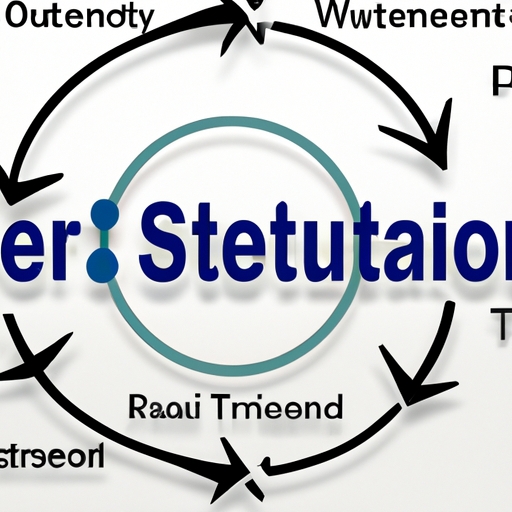
Furthermore, consider their approach to technology. Do they partner with leading security vendors (offering best-of-breed solutions)? Are they vendor-agnostic, able to integrate with your existing infrastructure (minimizing disruption and maximizing ROI)? Ultimately, the "best" provider is the one that best aligns with your organizations culture, security maturity, and budget (a perfect fit is crucial for a long-term partnership). Its about finding a trusted advisor, not just a vendor.
Comparing Service Offerings and Pricing Models
Zero Trust. Its the buzzword, the security philosophy, and increasingly, the mandatory posture for organizations facing a relentless tide of cyber threats. But implementing Zero Trust isnt a one-size-fits-all endeavor. Its a complex journey, and many organizations need help navigating the landscape. Thats where Zero Trust Implementation Services come in, offered by a plethora of providers, each with their own unique spin.
Comparing these service offerings and pricing models is crucial to finding the best fit. Think of it like buying a car (a very expensive, highly secure car). You wouldnt just walk onto a lot and pick the flashiest one (hopefully!). Youd consider your needs (family car, sports car, hybrid?), your budget, and the features that matter most. The same logic applies here.
Service offerings can range from basic assessments to full-scale implementation and management. Some providers focus on specific areas, like identity and access management (IAM), microsegmentation, or data security. Others offer a more holistic approach, encompassing everything from network architecture to endpoint security.
Zero Trust Implementation Services: Find the Best Provider - managed service new york
- managed services new york city
- check
- managed services new york city
- check
- managed services new york city
- check
- managed services new york city
- check
Zero Trust Implementation Services: Find the Best Provider - managed services new york city
Then theres the thorny issue of pricing. Models vary widely, from fixed-fee projects to subscription-based services. Some providers charge by the hour, while others offer bundled packages with different tiers of support.
Zero Trust Implementation Services: Find the Best Provider - check
- managed service new york
- managed it security services provider
- managed services new york city
- managed service new york
- managed it security services provider
- managed services new york city
- managed service new york
- managed it security services provider
Ultimately, the best provider is the one that aligns with your organizations specific needs, budget, and security goals. It requires careful research, a thorough understanding of your own environment, and a healthy dose of skepticism. Dont be afraid to ask tough questions, demand transparency, and seek references.
Zero Trust Implementation Services: Find the Best Provider - check
- managed it security services provider
- managed services new york city
- check
- managed it security services provider
- managed services new york city
- check
The Implementation Process: What to Expect
Lets talk about the implementation process when youre diving into Zero Trust with an external provider. Its not just flipping a switch, it's more like a carefully orchestrated dance. (Think less rave, more waltz.) Finding the best provider is key, but understanding what you're actually getting into is just as important.
The initial phase often involves a lot of assessment. Expect the provider to really dig into your current infrastructure. (Theyll be asking questions about everything from your network topology to your application security.) This isnt just busy work; its absolutely crucial for tailoring a Zero Trust strategy that fits your specific needs. A cookie-cutter approach simply won't work here.
Next comes the planning stage. This is where the provider outlines the proposed architecture, the technologies they'll be using, and the timeline. (Don't be afraid to ask for details, like specific software vendors and their rationale for choosing them.) They should be able to clearly articulate how their solution addresses your identified security gaps and aligns with your business objectives.
Then, you move into the actual implementation.
Zero Trust Implementation Services: Find the Best Provider - managed services new york city
- managed services new york city
- managed services new york city
- managed services new york city
- managed services new york city
- managed services new york city
- managed services new york city
- managed services new york city
- managed services new york city
- managed services new york city
- managed services new york city
Finally, theres the ongoing management and optimization. Zero Trust isnt a one-and-done project. (It's a continuous journey, not a destination.) The provider should offer ongoing support, monitoring, and adjustments to the system to ensure it remains effective against evolving threats. This might include things like regular security audits, penetration testing, and software updates.
Throughout the entire process, remember to focus on clear communication, realistic expectations, and a provider who truly understands your business needs. (A good provider will act as a partner, not just a vendor.) By understanding what to expect, you can navigate the implementation process more effectively and achieve a successful Zero Trust deployment.
Measuring Success and Ongoing Management
Measuring Success and Ongoing Management: Finding the Right Zero Trust Provider
So, youve decided to embark on the Zero Trust journey. Excellent! But implementing a Zero Trust architecture isnt a set it and forget it kind of deal. (Its more like a garden that needs constant tending.) That's where measuring success and ongoing management come into play, and why finding the right provider is crucial.
Think about it: how will you know if your Zero Trust implementation is actually making your organization more secure? You need metrics. These metrics can be anything from the reduction in successful phishing attempts (a big win!) to the time it takes to detect and respond to a security incident (speed matters!). Your chosen provider should be able to help you define these key performance indicators (KPIs) upfront, tailored to your specific business needs and threat landscape. They should also provide tools and dashboards to track these metrics over time.
But its not just about the numbers; its about continuous improvement. (Think of it as levelling up your security game.) A good provider wont just implement the solution and disappear. Theyll offer ongoing management services, including regular security assessments, threat intelligence updates, and policy adjustments based on the evolving threat landscape. This means theyll stay ahead of the curve, adapting your Zero Trust architecture to address new vulnerabilities and attack vectors.
Choosing a provider that understands the importance of both measuring success and providing ongoing management is paramount. They should be able to demonstrate a commitment to continuous improvement, offering not just a product, but a partnership. (Look for providers that talk about collaboration and knowledge sharing.) This ensures your Zero Trust investment delivers long-term value and keeps your organization secure in an ever-changing digital world. Essentially, youre not just buying a service, youre investing in peace of mind knowing your security is in capable hands.
